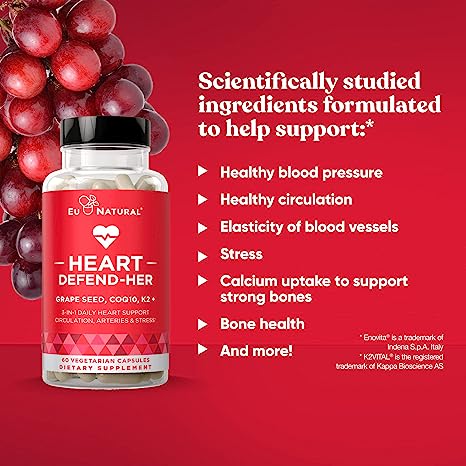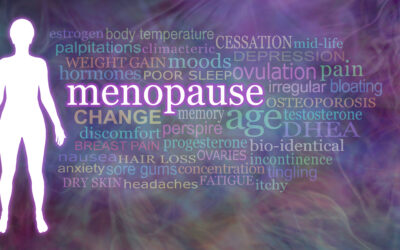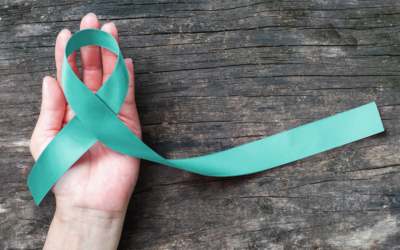We’re Failing to Prioritize Women’s Heart Health
Heart health is often a topic singularly focused on men, typically older men. Contrary to popular belief, heart disease affects women of all ages, including young women who face significant challenges. This lack of recognition leaves women’s heart health chronically underrepresented at best. At worst, symptoms in women are commonly overlooked or attributed to other causes, which leads to delayed or misdiagnosed treatment. It’s urgent that society begin to recognize and address the impact of heart disease on women.
For starters, we need become better grounded in current realities. For example, here are 10 surprisingly little-known facts:
 Cardiovascular disease is the leading cause of death in women, surpassing breast cancer by 16 times.
Cardiovascular disease is the leading cause of death in women, surpassing breast cancer by 16 times.- Approximately 445,000 women experience either a first-time or recurrent heart attack and fatal coronary heart disease each year.
- Despite heart disease being the number one killer of women, only about half of women are aware of this fact.
- Women may exhibit different symptoms during a heart attack compared to men. While chest pain is a common symptom for both genders, women often report additional symptoms such as nausea, vomiting, and shortness of breath. These symptoms are much less predominant in men’s heart attacks.
- There is a disparity in symptom recognition and treatment, particularly for women of color. Black women are 28% less likely to receive guideline-based treatment during a heart attack compared to white women.
- Heart failure is a significant concern for women, and the age-adjusted rate is more than double for Black women compared to white women.
- High blood pressure affects almost 50% of women, and factors such as pregnancy, menopause, and hormonal birth control can increase the risk.
- Atrial fibrillation, a heart rhythm problem, is more prevalent in men but affects more women due to their longer life expectancy.
- Spontaneous coronary artery dissection (SCAD), a type of heart attack, primarily affects women in their 40s and 50s, often occurring without recognized risk factors.
- Women face challenges in receiving proper diagnosis and treatment for heart-related issues, emphasizing the need for self-advocacy and seeking second opinions when necessary.
Next, women should keep in mind whether or not they may be at higher risk. High blood pressure, affecting nearly 50% of women, poses a significant threat as it can damage arteries and lead to heart attack, stroke, and organ damage. Age and menopause also play a role, with the risk of heart disease increasing as women get older and hormonal changes during menopause potentially contributing to cardiovascular issues. Obesity and overweight status are additional risk factors, as excess weight can elevate blood pressure and increase the likelihood of heart-related problems. Family history of heart disease, diabetes, hormonal factors like pregnancy and menstrual cycle changes, smoking, sedentary lifestyle, chronic stress, and other health conditions such as autoimmune diseases and sleep apnea further contribute to the risk.

It is of course important that Women be proactive in managing these risk factors through a healthy lifestyle, regular check-ups, and open communication with healthcare providers to prioritize their heart health.
Magnified is the importance of better understanding and asking questions when they may be seeing warning signs. For example, abnormal and persisent shortness of breath, nausea, back or jaw pain, or extreme fatigue may be mistakenly attributed to other conditions or dismissed as non-cardiac in origin. If women are experiencing these issues, they should ask their doctor if their symptoms could suggest a heart condition. As good as your doctor may be, they are also human and may not be fully immune from societal bias to overlook women’s heart conditions.
Most of all, society should be doing a much better job of highlighting prevention strategies specific to women. While many of these prevention strategies can be generic to both men and women, there are certainly specific things that are more relevant to and common for women.
- Engaging in regular cardiovascular activities, such as walking, jogging, or cycling.
- Managing stress via low impact exercises like pilates and yoga.
- Group exercise classes that are both motivating and enjoyable like Zumba, dance fitness, kickboxing, or step aerobics. Group classes provide an opportunity for social interaction and support, which can enhance adherence to exercise routines.
- Maintaining a nutrient-rich diet depending on what life stage a woman is in. Most people don’t realize that different life stages require different and more specific nutrients. You’ll see key differences in the below:

It is time for society to better recognize and prioritize women’s heart health. By addressing the knowledge gap, challenging gender biases, and promoting equal attention to heart disease in women, we can strive for a future where every woman receives the care and support she deserves.
For those looking for additional heart support, our partner Eu Natural, the leader in clean, pure and potent vitamin and botanical specialty blends for a healthier Eu (You), has a great product called “Heart Defend Her” is here to help. With cardiovascular disease being the leading cause of death among women, it’s crucial to take proactive steps to protect our hearts. Heart Defend Her is a game-changer, offering a powerful 3-in-1 daily heart support solution designed specifically for women. Packed with clinically researched ingredients like CoQ10, Hawthorn Berry, and Magnesium, this unique formula supports cardiovascular health, helps maintain healthy blood pressure levels, and enhances overall heart function. Don’t let heart disease hold you back from living your best life. Take control of your heart health with Heart Defend Her.
Check it out HERE –>> Heart Defend Her
P.S. We have an exclusive 25% offer for Better Living customers, so be sure to use code BETTERLIVING25 in checkout!

It’s important to do our part to make things better. If this article was valuable to you and would be interesting to your loved ones, please share it!



